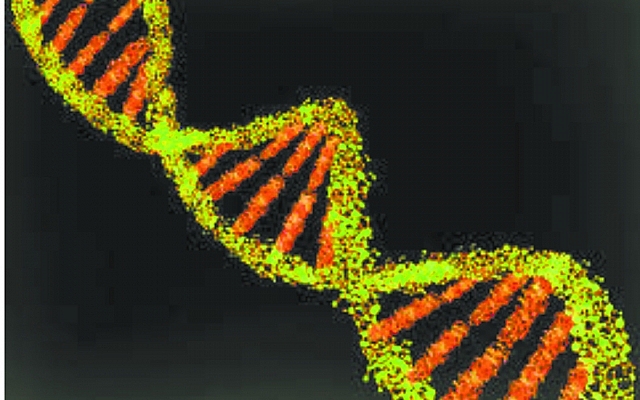JScreen Tests for BRCA Gene
A new research initiative focused on screening Ashkenazi Jews for the BRCA cancer gene is being launched by JScreen.
A new research initiative focused on screening Ashkenazi Jews for the BRCA cancer gene is being launched by JScreen, a national genetic screening program based at Emory University’s Department of Human Genetics. The research will screen for cancer risk in Atlanta Jews 25 and older from Ashkenazi (Eastern or Central European) Jewish descent.
The study is conducted in partnership with Winship Cancer Institute of Emory University, which also led research called the PEACH (Program for Evaluation of Ashkenazi Cancer Heritability) BRCA Study.
The new research will provide free genetic screening for men and women with an Ashkenazi Jewish background who do not have a personal or close family history of BRCA-related cancers, but are at increased risk for carrying a BRCA mutation gene based on their ancestry.
Anyone who tests positive for a BRCA mutation gene is at significant risk for developing certain cancers, including breast, ovarian, prostate and pancreatic cancers.
Recently tested was Stacey Davis, whose friend works for JScreen and recommended her to take the study. The results were upsetting. “I found out through my OB-GYN and I was completely shocked and cried, to say the least.”
Finding out she had the BRCA mutation gene, her initial reaction was to immediately remove her reproductive organs and breasts. “I went into this process that everything needs to come out within six months, which was not realistic, and I started meeting with doctors and went to breast specialists,” Davis said.
“I had a total hysterectomy and a double mastectomy, and I actually feel okay. I joined a Facebook group and connected with a girl from Colorado that was going through a similar experience as mine, and that was amazing support.”
In light of Davis’ experience, and knowing that Ashkenazi Jews are at increased risk for carrying the BRCA mutation gene, she now advocates for BRCA screening for women and men with Jewish background, regardless of their personal or family history of cancer. “At the screenings I knew almost everyone and told them that if you can get tested and it’s is free, why not?” Davis said.
“This program is a profound opportunity to promote health and knowledge in our Atlanta community,” philanthropist and JScreen donor Bernie Marcus said in a press release. “There is an obvious need to make testing more accessible for this population, and I want to be a part of finding solutions to this challenge. When people have more information about their genetic risks, they can manage their health, live longer, and make the most informed decisions for themselves and their families.”
Eligible participants will provide a saliva sample for detailed testing of their BRCA1 and BRCA2 genes and will receive their results from a certified genetic counselor by phone or secure video conference. Those who learn that they have a mutation will be provided with options for cancer risk-reduction and will be referred for appropriate follow-up care. There is no charge to participate in the study.
Ashkenazi Jews are 10 times more likely than non-Jews to have a BRCA mutation. Despite this risk, insurers will only cover testing if someone has a personal or close family history of BRCA-related cancers. “We are thrilled to be launching this research initiative under the direction of medical oncologist Dr. Jane Meisel of Winship Cancer Institute,” Karen Arnovitz Grinzaid, executive director of JScreen, said in the release. “We are hopeful that the results of this study will impact testing guidelines, making BRCA screening for this high-risk population more accessible and affordable.”
To learn more about the new testing, visit www.jscreen.org/brca.




comments